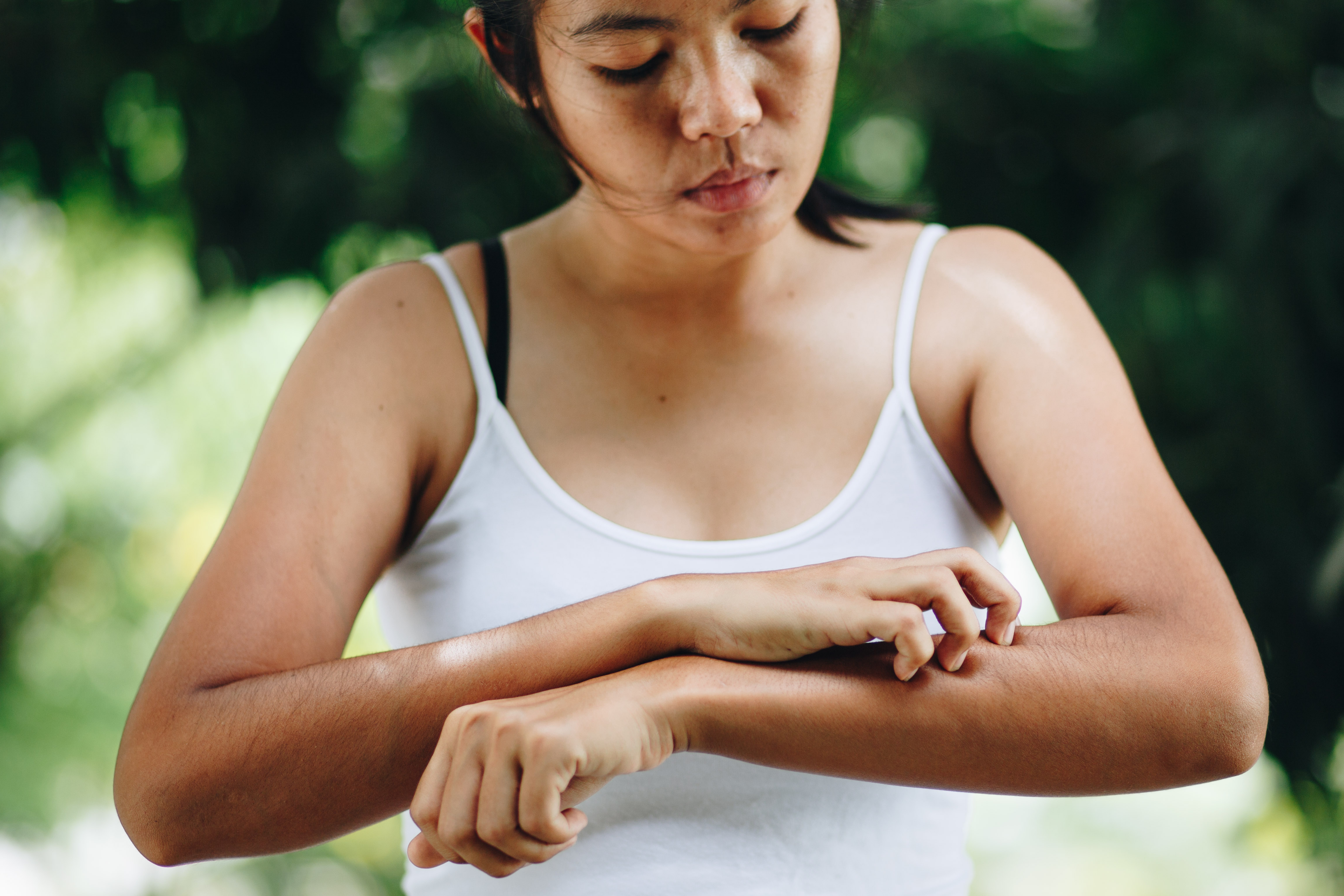Psoriasis. Hard to spell, easy to misunderstand. That’s why we’re here to clear things up for Psoriasis Awareness Month.
Misconceptions about psoriasis can lead to stigma and create undeserved shame or embarrassment surrounding the matter. A study conducted in 2020 found that psoriasis can cause psychological and social implications for those who struggle with it. Raising awareness of the condition helps shatter myths about psoriasis. So, let’s get into it!
What is Psoriasis
Commonly mistaken as just a skin condition, psoriasis is actually an autoimmune disease where the immune system becomes overactive and starts attacking normal tissues in the body. With psoriasis, skin cells multiply up to ten times faster than usual, causing cells to rapidly build on top of the skin.
This extra skin forms itchy, red patches and painful scales generally found on joints like elbows and knees. They can also develop on the hands, feet, neck, scalp, and face. Psoriasis is a chronic disease that comes and goes with regular flare-ups and dormant periods.
Around 7.4 million Americans have psoriasis, and although different types exist—pustular, inverse, erythrodermic—plaque psoriasis makes up 80 percent of cases.
The most common symptoms of plaque psoriasis include:
- Red, raised, inflamed patches of skin
- Itching and burning around the patches
- White scales on top of the red patches
- Dry skin that may bleed and crack
- Skin soreness
- Thick and pitted nails
- Painful, swollen joints
Who’s at Risk?
Anyone can develop psoriasis. It occurs mainly in adults, but children can also have it. According to the CDC, men and women have equal risk.
If you are one of the millions of people who have psoriasis, you are not alone! Psoriasis doesn’t discriminate. Even celebrities with access to the best skincare, dermatologists, and doctors struggle with the effects. Stars like Kim Kardashian, LeAnn Rimes, Cyndi Lauper, and Queer Eye’s Jonathan Van Ness have all been open about their skin journey with the disease. Sharing your psoriasis story can help others feel less alone in their battle, a primary goal of Psoriasis Awareness Month.
Myths
Here’s a look at three common myths about psoriasis and the truth behind them.
#1 Psoriasis is contagious
This is untrue, simply for the fact that autoimmune diseases are not contagious. Autoimmune diseases are not caused by one thing in particular but build up over time due to multiple factors like heredity, environmental factors, and hormonal factors.
You can touch, hug, kiss, and share food with a person suffering from psoriasis without any fear of developing the disease.
#2 Psoriasis is curable
Unfortunately, this is not true. Although it’s not technically curable, it can be well managed with skin-related remedies. A dermatologist, rheumatologist, and primary care doctor can all help you find relief from psoriasis symptoms.
When a doctor treats it, there are three goals:
- Soothing itching/inflammation
- Removing excess dead skin from the body
- Stopping overactive skin cell production
Treatment options for psoriasis:
- Self-Care: stress management, petroleum jelly, light therapy, coal tar extract, etc.
- Medications: steroids, vitamin A derivative, anti-inflammatory, immunosuppressive drug, etc.
- Medical procedures: photodynamic therapy.
#3 Psoriasis is only a skin problem
It’s not just the skin that’s affected by this disease. When outbreaks are particularly noticeable, psoriasis sufferers can feel depressed, anxious, or stigmatized by their condition, especially if it’s obvious or in hard-to-cover areas. The patches of skin can become painful and itchy and can bleed or crack, leading to a much higher risk of infection.
Psoriasis is also associated with other conditions like type 2 diabetes, inflammatory bowel disease, heart disease, anxiety, and the most common, psoriatic arthritis. The most frequent signs of psoriatic arthritis are joint stiffness, swelling, and pain. These issues can affect any part of the body and can be accompanied by fever, fatigue, and skin inflammation.
If you or a loved one have a painful psoriasis flare-up or experience joint pain, swelling, and fever, we’re here to help. Our premier facility is open 24/7, 365 days a year, and we offer top-tier care without the wait or fuss.
Regardless of what medical emergency arises, we are fully equipped to treat an array of conditions and injuries and pride ourselves on exceeding patient’s expectations.





Comments are closed